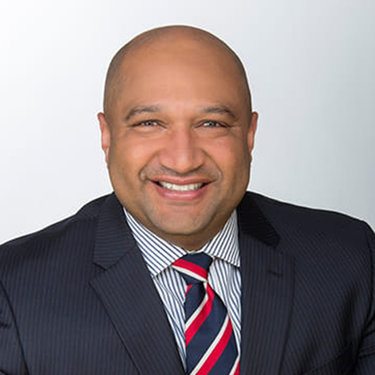Once the crusading progressive, Albany County District Attorney Soares draws primary challenge from his left flank
ALBANY COUNTY — It’s the “short memories of American voters” that keep “our politicians in office,” Will Rogers, the early 20th-Century entertainer and newspaper columnist, wrote in his April 1930 “Will Rogers Says” column, which reached 40 million daily readers — one-third of the country’s population.
Rogers was writing about six months after the Wall Street Crash of 1929 had plunged the country into the Great Depression, and eight years into single-party control — the Republican Party — of the presidency, Senate, and House of Representatives.
The 1932 election would send Franklin Delano Roosevelt, a Hudson Valley patrician called a “traitor to his class” for using the power of his office and the federal government to regulate the American economy and protect its citizens from “the vicissitudes of life,” to the White House until his death in 1945 and usher in the “permanent Democratic Congress,” a phrase coined by political scientist Norman Ornstein, for nearly the remainder of the century.
Sixteen years ago, David Soares was the 34-year-old political neophyte and criminal-justice reformer who upended three decades of entrenched Albany machine politics when he launched a Democratic primary challenge to his boss, Albany County District Attorney Paul Clyne, while still working in the DA’s office; Soares was promptly fired.
Clyne had, in effect, been running for Sol Greenberg’s eighth term.
Greenberg had been Albany County’s district attorney from 1974, when he was handpicked by the O’Connell machine to run for the county’s top job in law enforcement, until 2000. Greenberg stepped down too late for a Democratic primary and Clyne, who had been an assistant district attorney under Greenberg, got the party’s backing.
Four years later, Soares, along with the money and organizing strength of the then-six-year-old Working Families Party, ran a single-issue campaign.
In the 1960s, drug addiction was treated as a medical problem in New York, and Nelson Rockefeller, the state’s liberal-leaning Republican governor at the time, was a champion of that approach. By the ’70s, some neighborhoods were rife with vacant, decaying buildings — resembling urban ruins.
Attitudes about drugs and crime changed, and, in 1973, the “Rockefeller Drug Laws” were passed, which set strict sentencing guidelines and created mandatory-minimum sentences of 15 years to life for possession of a small amount of drugs.
“Soares focused his first campaign on the Rockefeller drug laws,” according to Politico. “District attorneys, he argued, should use discretion with accused offenders who might be better off receiving a sentence that doesn’t involve incarceration, and they should not be afraid to lobby the state to change unjust laws.”
In the 2004 Democratic primary, Soares ousted Clyne 62 percent to 38 percent. Politico, citing the Drug Policy Alliance, said Clyne’s loss was “the first time a political candidate has been defeated primarily because of their overzealous support of the drug laws.”
In the November general election, Soares again faced Clyne, who had the Independence Party line, as well as Republican Roger Cusick.
Clyne dropped out of the race barely a week before Election Day and endorsed Cusick, but the move wasn’t enough in a county where Democrats outnumbered Republicans 82,300 to 43,516; as of November 2019, there were about 94,000 registered Democrats and 34,000 registered Republicans in Albany County.
This time around, it’s Soares, seeking a fifth term, playing the part of entrenched incumbent, tasked with defending a decade-and-a-half hit-and-miss record, against a well-funded 34-year-old primary challenger who has seized the party’s progressive mantle — as well as the progressive infrastructure that first put Soares into office.
Matt Toporowski worked as an assistant district attorney for Soares from 2012 and 2015. In February, he received the backing of the Working Families Party, which had previously backed Soares in all four of his runs for district attorney.
In 2004, the Working Families Party, by receiving contributions “in excess of the $5,000 corporate contribution limit set set forth in” New York State Election Law and “illegally” spending those “campaign funds to aid David Soares in the 2004 Albany County Democratic primary,” according to the filers on the losing end of a 2006 lawsuit brought against Soares and the WFP, among others, set a new legal precedent whereby, as described by The New York Times, “political parties must be allowed to spend money to directly influence other parties’ primary elections.”
The court found that the state-set expenditure limits, “as applied to the Working Families Party, unconstitutionally burdened its First Amendment rights of political expression and association,” according to the state Board of Elections.
Or money equals speech.
The 2006 lawsuit said that over $120,000 in contributions were funneled through the Working Families Party and spent on behalf of Soares, while state records show that Soares received a little over $50,000 in direct contributions from the Working Families Party between July and August 2004.
So far, Toporowski has received one contribution of about $1,100 from the Working Families Party. But he is more than making up for the lack of third-party spending by outraising Soares among individual, small-dollar donors.
As of Sunday, Toporowski had raised about $62,000 from over 330 individual contributions — from about 290 individual contributors; 40 the contributions came from out of state.
The median donation to Toporowski was about $54, meaning about half of all donations made were under that dollar figure; his smallest donation was $3 while his largest was $4,700.
Soares had raised about $33,000 from 110 individual contributions, 107 of which were individual contributors. The median contribution to Soares was $150, while the smallest donation he received was $25 and the largest was about $2,700.
So far, all of the money raised by Soares has been from in-state contributors.
In previous re-election bids, Soares had raised four and five times the amount of his current haul; in 2008, he received over $125,000 in contributions while in 2012, he took in almost $167,000 in donations.
The candidates were asked about their view on the role of the district attorney; prosecutorial discretion; Soares’s request request of Governor Andrew Cuomo to assign a special prosecutor to officer-involved criminal cases in Albany County; the state’s new discovery rules; and sexual assault in the county.
David Soares
(Listen) — David Soares first decided to run for Albany County district attorney in 2004 because of the “terrible policies that were affecting disproportionately people of color,” he said, referring to the Rockefeller Drug Laws.
He promised to create a different justice system, he said, by exercising prosecutorial discretion, seeking more alternatives to incarceration, and implementing new strategies to combat crime and violence in the community.
“I would also revisit issues surrounding our current drug laws,” he said. “And I've managed to do that ... so successfully that when I came into office the Albany County Correctional Facility was a facility you could not get a room at.”
But now, because of the diversion and reform policies instituted on his watch, Soares said, occupancy at the jail has been reduced by 66 percent.
In 2004, the year before Soares took office, Albany County’s 1,043-bed facility had an in-house daily average population of 870, according to the New York State Division of Criminal Justice Services.
By 2019, the county jail — which Soares points out has been rechristened the Albany County Corrections and Rehabilitation Services Center, a consequence of policies he’s championed, he said — had an in-house daily average population of 467, which translates to a 46-percent decrease since 2004.
Soares sees everything that’s happening right now in Albany County and across the country, the calls for additional reforms, he said, “I’ve been a champion of reform from the very beginning.
“I’ve brought Albany to that place of reform, and I’ve had to do battles with governors, with police, with the judges, and institutions to achieve all the goals that we’ve achieved thus far.”
And he believes he’s the leader who can “continue that fine tradition” while also working to bring about more change.
Soares views his role as district attorney as one that consistently seeks to hold people accountable for breaking the law, while also protecting victims.
But the county’s chief prosecutor has the added obligation of finding opportunities to use the system to help give people a second chance, he said, rather than employing it as a “punitive instrument.”
Albany County is second to only Manhattan in the number of cases sealed and records expunged, Soares said, stating that those efforts help some people who have made mistakes when young to later find a job and a place to live.
He also said he’s leading the charge on marijuana reform in the county while continuing “to add my voice to the state’s efforts to bring legalization” to New York State.
Soares said that the color of a prosecutor’s skin has no bearing on how the job is done. “The job is performed based upon the reading of the law and the offenses that individuals are being charged with,” he said.
But speaking to diversity, Soares said that he’s “been responsible for making sure that 25 percent of prosecutors and other staffing that we have hired in the office are people of color, both men and women.”
He pointed out that the “vast majority” of his bureau chiefs are women — six of nine, in fact, according to a search of his website — “and I say that because, in order to properly serve a community, you have to have an office that reflects, by and large, that community.”
Asked if his opponent, Matt Toporowski, had been correct in stating that there were just two lawyers of color out of the 30 attorneys in his office — one of whom is Soares, who doesn’t prosecute cases — Soares responded that, although his office has hired a number of attorneys of color, they have moved on to “bigger and better opportunities.” He added that one of his current bureau chiefs is a woman of color.
Soares also didn’t deny Toporowski’s charge.
Soares additionally pointed out that a large portion of his support staff are persons of color, including the head of his office’s outreach center, which is a non-attorney bureau chief.
But, he said, “I don’t go around counting desks.”
Soares said he hires qualified candidates, adding that diversity is a focus for his office. Before any hire is made, he said, the county’s affirmative action coordinator is contacted to see if there are applications on file.
That his request of Governor Andrew Cuomo to appoint a special prosecutor in all new cases where members of law enforcement are accused of a crime or misconduct “is being done as a gimmick or for political expediency, to me, is laughable at best and demonstrates a complete lack of history, institutional history, and knowledge with respect to these cases,” Soares said.
This isn’t the first time he’s made a request like this, he said.
Soares said he would be happy to provide one of the numerous correspondences between his office and the governor’s which date back years, referring to the 2015 letters he sent to Cuomo related to the death of Donald “Dontay” Ivy, an unarmed 39-year-old black man who, after a confrontation with three Albany police officers where he was Tasered multiple times, died in police custody.
In July 2015, Cuomo had issued an executive order that gave the state’s attorney general special prosecutorial powers in police-involved deaths of unarmed civilians. Soares said he sent the letters to both the governor and attorney general “asking them to take these cases.”
Ivy died in April 2015, and Soares was told the executive order wouldn’t be retroactive.
Asked about why he didn’t seek to recuse himself from the Ellazar Williams case, Soares said, “Here’s the difference between facts and fiction”: When that happened, the first person his office called was the state’s attorney general.
The attorney general’s office came in to review the facts of the case to see if it would take it on, Soares said, but declined to do so because there was no death and the defendant was armed. Williams survived the police shooting but was paralyzed.
“And so that leaves the district attorney who was constitutionally responsible for investigating those cases and conducting grand jury investigations,” Soares said, adding that he instituted a first-of-its-kind policy for the county, whereby all use-of-force cases will be investigated by a grand jury, which is what happened with the Williams case.
On the state’s new discovery law, Soares said, “Eighty-five percent of what they did was absolutely necessary and important.”
But he added that he had been appointed to a task force made up of judges, academics, defense attorneys, police, and victim advocates that, over the course of a year, “sat in rooms” and developed reforms — reforms, he said, that were “pushed out by the chief judge of the state of New York.”
And those reforms would have addressed some of the issues that Soares had criticized about the law that was passed in April 2019 — but the task force’s recommendations were largely ignored, he said.
About the question of Albany County prosecuting only a fraction of rape cases, Soares makes it very clear that wasn’t what was asked of him.
He points out that he was provided with information pertaining to the number of reports of rape received by police and the number of resulting arrests made. “And then you’re talking about why they are not prosecuted? Those are very, very different functions,” Soares said.
Of his own office’s Special Victims Unit, he said, it’s “one of the most effective” in the Capital Region, led by a woman with over 20 years of experience in trials and investigations.
Matt Toporowski
(Listen) — Matt Toporowski said he decided to run for district attorney after handling a case against the current office.
He had been appointed to represent a young back man named Kalim Lewis who had been charged with gun possession, after police “busted” into the house he was staying in, Toporowski said.
The name on the search warrant had been a woman’s, he added
Toporowski said the police found the gun buried in a pile of women’s dirty laundry on the other side of the room from where Lewis had been sleeping.
“But they charged him anyway — the woman wasn’t home, by the way,” he said.
Given that it wasn’t Lewis’s gun, Toporowski said that the decision was made to go to trial.
But, during jury selection, he said, he quickly realized that “it was going to be an uphill battle” to get Lewis a jury of his peers, a diverse jury, because the prospective black and brown jurors “quickly raised their hands” when asked if they had “bad experiences” with the district attorney’s office.
The district attorney challenged the remaining two black jurors and knocked them off the panel “for no reason,” Toporowski said, adding, “It was a discriminatory challenge” because the two black jurors said they could fair.
At that point, Lewis realized he wouldn’t get a fair trial, Toporowski said; he was a young black man facing an all-white jury, which ended up convicting him and sentencing him to 10 years.
The justice system, as it’s set up, has prosecutors “who are hellbent on winning at all costs — and not seeking the truth,” Toporowski said. “They just want convictions.”
“We need” to end the two-tiered system of justice that “we all know exists,” he said, which was again laid bare during the COVID-19 pandemic, as white men who, at one time, had power were “sailing out of jail,” he said, citing Michael Cohen, President Donald Trump’s former lawyer, as an example.
The role of the district attorney “is to always seek the truth,” he said. “You’re not just seeking punishment and convictions,” which is a move that has led to mass incarceration, and has led to a 50-percent higher incarceration rate in Albany County under Soares, he claims.
Soares was first elected in November 2004 and took office the following January. In Albany County in 2004, the incarceration rate was 419 people in jail for every 100,000 residents, according to the Vera Institute of Justice. In 2005, Soares’s first year in office, the county’s jail incarceration rate dropped to 376 per 100,000 population.
Albany County in 2017, the last available year for which data is available from Vera, hit an all-time low for Soares’s tenure, with a jail incarceration rate of 286 per 100,000, according to Vera.
Between 2004 and 2017, Albany County’s jail incarceration rate decreased by about 32 percent.
On prosecutorial discretion, Toporowski said, “I would say 100 percent” the color of a prosecutor’s skin relates to how his job is performed.
But, he said, “The question you’re really asking is: How do we best address the structural racism in the system?” To address the structural issues, he said, you have to look at those administering the justice.
And in the Albany County District Attorney’s Office, according to Toporowski, there are just two attorneys of color — one of whom is Soares, who doesn’t handle cases.
The remaining prosecutors are white, Toporowski said, which only perpetuates the structural inequities of the justice system. At issue, he said, is the current district attorney’s inability to hire and retain lawyers of color, “and they need to.”
The job can’t be done appropriately, he said, without having the lawyers who make decisions that affect the lives and freedom of people, having had some of the same lived experiences as those who they are prosecuting.
Toporowski pointed to a survey report put out by the Center for Law and Justice in Albany that said the city’s black and brown residents trusted Soares’s office about as much as they trusted the police, which is to say very little.
The black jail incarceration rate in Albany County the year before Soares became district attorney, 2004, was 2,026 per 100,000, according to Vera, and in 2005 the rate dropped to 1,978 per 100,000.
In 2017, the black jail incarceration rate in Albany County was 1,209 per 100,000, up from 988 per 100,000 the year prior — the lowest black jail incarceration rate in Albany County for the 27 years of available data from Vera.
Like his political campaign, which is diverse “across age, race, sexual orientation,” Toporowski said he’d create a district attorney’s office where people of color will feel comfortable and want to work.
As for how he’d carry his campaign’s diversity into office, he was asked if that meant cleaning house on day one, and while he wouldn’t be tearing the district attorney’s office down to its studs, Toporowski did say that changes will need to be made, “the leadership definitely.”
But something he wanted to get across to the office’s “line” prosecutors is that, if they are on board with his program of reform, there will be a place for them. Asked if he’d commit to hiring more persons of color as “line” prosecutors, he said he’s committed to putting lawyers of color into positions of power in his office.
On Soares’s special-prosecutor request of the governor, Toporowski said it was politically expedient, as well as a “reactionary move to remedy a history of regressive policies.”
On discovery, Soares’s criticism isn’t correct, Toporowski said.
The changes had been debated and in the works for years, Toporowski said, so to say it was something pushed overnight is a tactic to make progressive legislation fail.
One thing about the new discovery law was that victims’ information wasn’t being handed over to their assailants, Toporowski said, which had been one of the things critics pointed to as a deficiency in the new rules.
What the new information-sharing rule meant was adequate contact information had to be provided — an email address or Google Voice telephone number — so that an attorney could follow up on the case, he said.
The new discovery law meant a lot more work but, at the same time, change always takes more work and is difficult; meaningful change isn’t achieved without tireless labor, he said.
Toporowski also said the new discovery law actually made it easier for prosecutors to call for a protection order, which meant that the judge could be asked to issue an order protecting information from being disclosed; “it made that easier, he said.”
One of the new law’s purposes was to prevent prosecutors from “dumping” evidence on the defense the weekend before the trial, Toporowski said, which is what happened with the Kalim Lewis case. The district attorney’s office tried to “dump a bunch of video evidence on me the Sunday before the Monday trial,” which he was able to get precluded, Toporowski said.
The rape question is a deeper one for the justice system as a whole, he said; what is it about the justice system that the overwhelming majority of people who experience sexual assault or are raped, don’t want to come forward — and what does it say when they come forward and nothing happens.
Toporowski isn’t saying that he’s got all the answers, but what he is saying is that he’s committed to a different approach and committed to reform.
Asked how, in just a four-year term as Albany County’s district attorney, he would be able to restore faith in a justice system that so many have credible reasons for being wary of, Toporowski said that process has already begun.
He’s starting to rebuild that trust through his campaign — meeting with community leaders, and people in the justice system — both those who have been wronged by it as well as its leaders.




